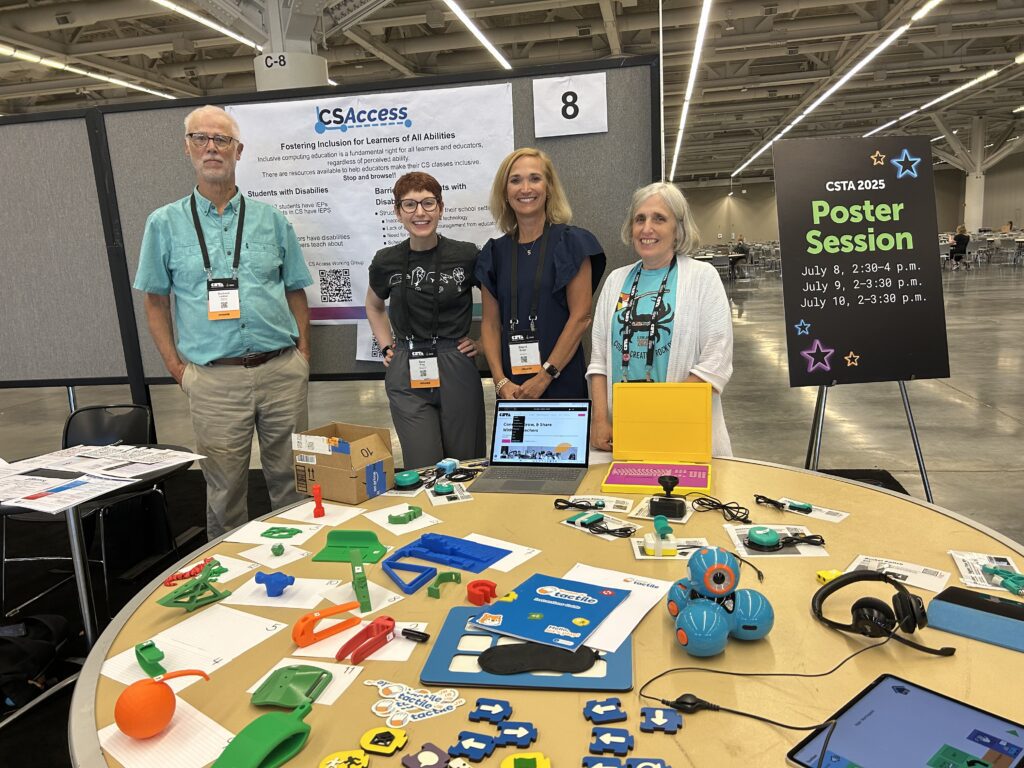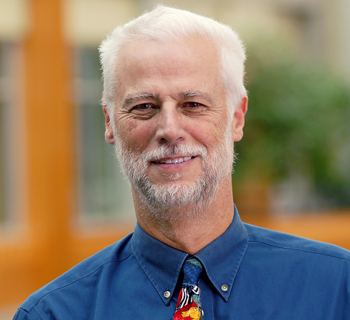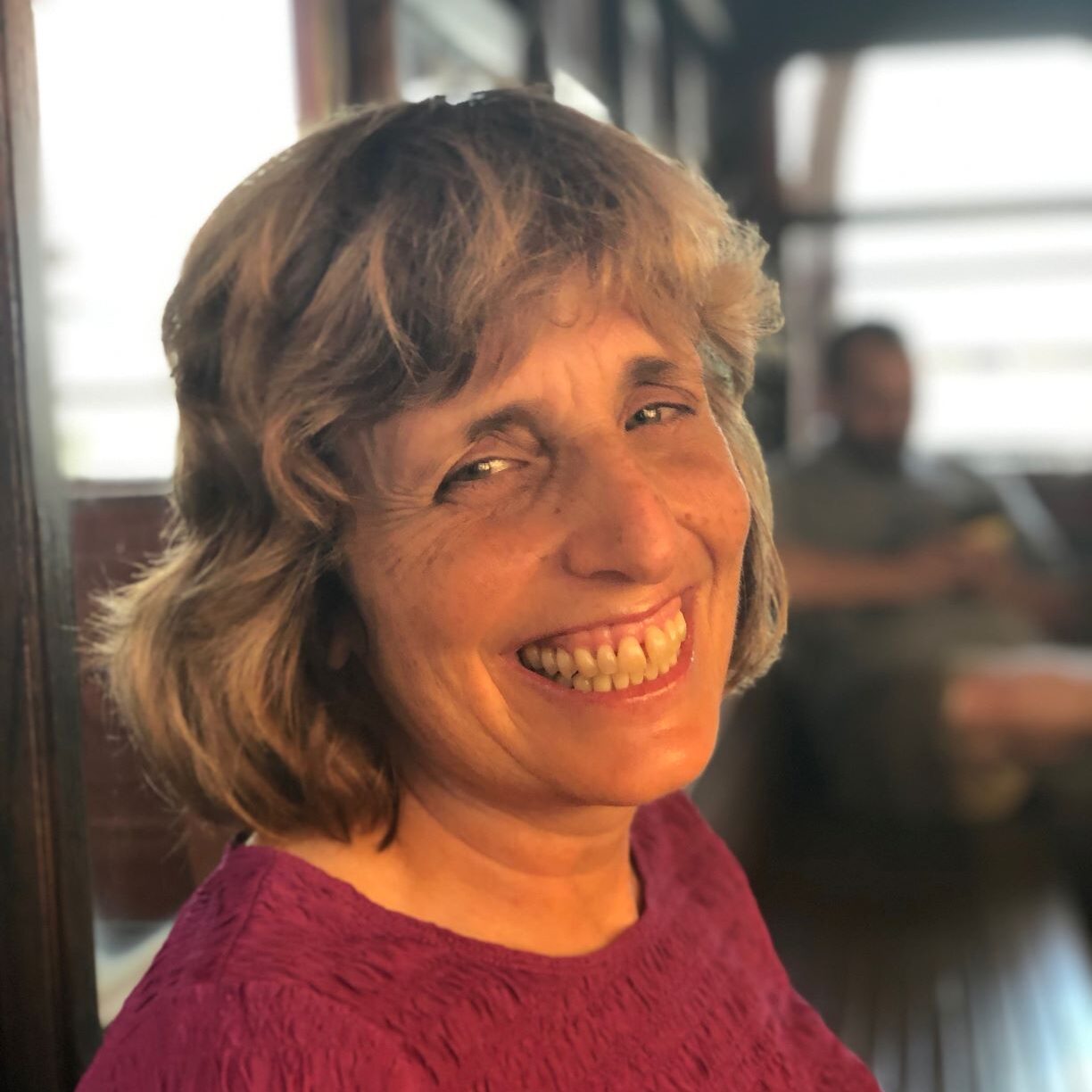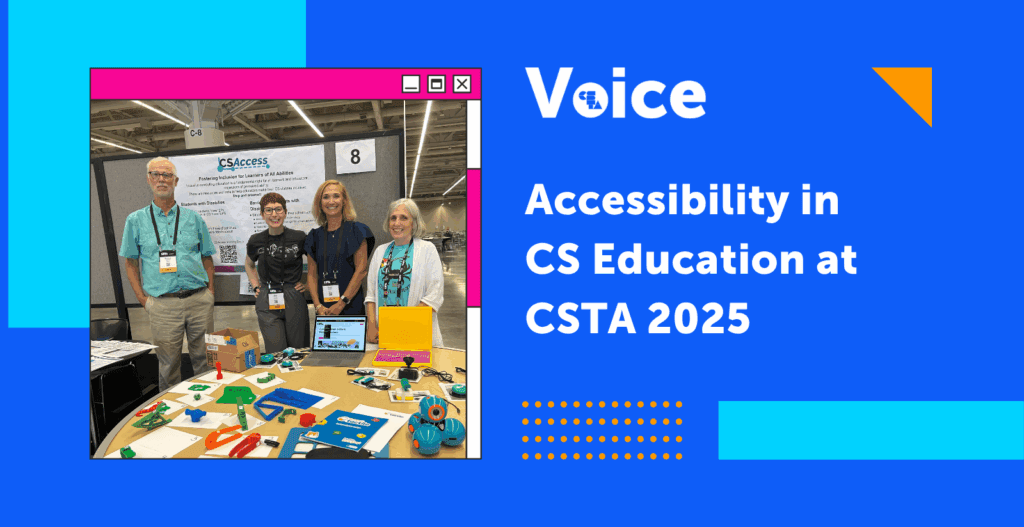The Computer Science Teachers Association (CSTA) is dedicated to expanding access to CS education to all students, including those with disabilities. At the CSTA Annual Conference in Cleveland in summer 2025, multiple sessions offered ideas and support for teachers to include all students in CS classrooms.
One exciting initiative underway is making block-based coding apps based on Google Blockly fully accessible. A first step is making the Blockly interface keyboard-only accessible, no mouse or touchpad needed. This is an important update for students with motor disabilities and others who cannot use a mouse or a trackpad. This is also essential for screen reader compatibility. One of the sessions, MakeCode Arcade: from Blocks to Text to VS Code, presented by Jacqueline Russell and Katie Henry, demonstrated how the block-based MakeCode interface is now keyboard-only navigable. They are, hopefully, the first of many CS tool providers who will adopt this new Blockly feature for their products.
It is important for teachers to know about the various accessibility affordances that are built into modern operating systems provided by Microsoft, Apple, and Google. For example, built-in screen readers, useful for students with print-related disabilities, are available on all these platforms. In his session, Accessibility Technology for Students with Disabilities, Richard Ladner demonstrated several of the more than 25 accessibility features available on the iPad. He used Blocks4All, an accessible block-based programming environment, to demonstrate VoiceOver screen reader, Voice Control speech interface, and Switch Control on the iPad. None of these accessibility affordances work with Scratch or ScratchJr. But hopefully that will change in the future.

The CSAccess Working Group in CSTA raised awareness of accessibility issues and compiled a list of all accessibility-related sessions. Resources from these sessions are available to all CSTA members in the Resources Library. It also had a session during the Volunteer Leadership Summit and in the Teachers’ Lounge about making events and presentations inclusive. During the poster session, CS Access demonstrated a variety of accessibility tools and technologies. Visitors to the poster were able to interact with several of these, including Blocks4All, Scratch Tactile, and a variety of 3D printed assistive technology devices.
For more accessibility information, go to the CSTA Accessibility webpage. To be a continuous learner about accessibility as it relates to PreK-12 CS education, please join the CSAccess mailing list by filling out this CSAccess Interest Form.
About the Authors

Richard Ladner is Professor Emeritus in the Paul G. Allen School of Computer Science and Engineering at the University of Washington. He served on the CSTA Board as College/University Faculty Representative from 2022-2024. He is a 2018 Champion of Computer Science – Accessibility presented by Computer Science Teachers Association and Code.org. He is an active member of the CS Access Working Group within CSTA.

Elissa Hozore is the Director of Accessible learning at Code in the Schools in Baltimore, Maryland. She leads the CSAccess Working Group and served as the Computer Science specialist at the Maryland State Department of Education from 2019 until 2024.

